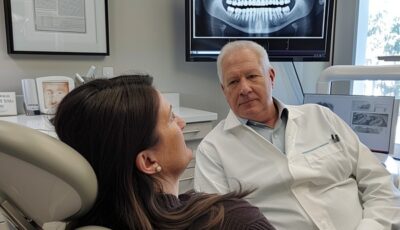
Struggling with a prolonged toothache can be quite distressing. It’s not just about the discomfort in your mouth; it affects daily activities, making even simple tasks seem daunting. Understanding the root causes and managing the pain is essential to finding relief. This article explores practical solutions and when it’s time to seek professional help, aiming to provide comprehensive guidance for anyone experiencing persistent dental pain.
Immediate Relief for a Prolonged Toothache
When dealing with a toothache that lingers, it’s crucial to first identify why the pain is occurring. Common causes include cavities, gum disease, or infections. Taking action quickly can help minimize discomfort. Here’s how to find some relief:
-
Rinse with Salt Water: This is an easy way to reduce inflammation and wash away bacteria.
-
Cold Compress: Applying a cold pack to the cheek can numb the area and lessen swelling.
-
Pain Medication: Over-the-counter medications like ibuprofen can temporarily ease the pain.
-
Oral Hygiene: Maintain proper brushing and flossing routines to prevent escalation.
-
Avoid Extremes in Temperature: Steer clear of foods and drinks that are too hot or cold.
Pinpointing the Source of Discomfort
Determining the exact cause of pain is a vital step. Visual inspections might reveal cavities or cracks, which often cause sensitivity. If there’s visible damage, a dentist should examine the area to provide targeted treatment. Problems like an abscess might need immediate professional intervention as they could lead to more severe complications. Addressing the cause as soon as possible prevents the condition from worsening and ensures relief from the pain.
When Professional Dental Care is Needed
While home remedies can be effective in the short term, persistent or severe pain often requires professional attention. It’s important to visit a dentist if the following symptoms occur:
-
Pain that persists or worsens
-
Swelling of the face or gums
-
Difficulty with swallowing or breathing
-
Continuous fever or chills
-
Discharge or pus at the site of pain
In situations where dental intervention is necessary, consulting an experienced professional can make a significant difference. For instance, individuals suffering from missing teeth or significant oral damage might consider contacting an implant dentist in Long Island. These professionals specialize in dental implants and can provide services to restore function and aesthetics to your smile. Exploring available local options ensures appropriate care and effective treatment. Timely dental visits not only alleviate pain but also prevent potential complications.
Exploring Further Home Remedies
Though professional advice is valuable, some additional home remedies might provide temporary comfort while awaiting a dental appointment:
-
Clove Oil Application: Known for its numbing properties, clove oil can be applied with a cotton swab to the area.
-
Peroxide Rinse: A dilute hydrogen peroxide solution might help clean out infection and reduce discomfort.
-
Tea Bags: Herbs like peppermint or chamomile are believed to have mild pain-relieving effects.
-
Cool or Warm Compress: Depending on the nature of the pain, alternating compresses might provide relief.
-
Herb Applications: Crushed garlic or vanilla extracts can be soothing when dabbed onto the affected area.
These at-home treatments are intended as temporary solutions. They should be used in conjunction with professional dental care to ensure long-term health.
Steps for Preventing Future Toothaches
Avoiding further dental pain relies heavily on consistent preventive care. Here are some actionable steps:
-
Regular Dental Visits: See a dentist every six months for check-ups and cleanings.
-
Balanced Diet: Limit sugary snacks and drinks, which contribute to decay.
-
Consistent Oral Care: Brush twice daily and floss regularly to remove plaque.
-
Use of Protective Gear: Wear mouthguards during sports or if grinding occurs at night.
-
Immediate Attention to New Symptoms: Don’t ignore initial signs of dental issues.
Routine dental check-ups can help spot early signs of potential problems, enabling quick intervention. For more complicated cases, consulting with professional dentists Huntington can offer further reassurance. Acting swiftly on new symptoms safeguards dental health and prevents the progression of issues.
Professional Treatment Options
In some instances, professional dental procedures are necessary to resolve underlying dental issues. Dentists might perform fillings, root canals, or other specialized treatments to address pain at its source. Persistent conditions like advanced gum disease may require targeted treatments. By seeking timely professional advice and considering specific bleeding gums treatment Long Island, NY, individuals can ensure effective long-term solutions and prevent further complications.
Strategies for Sensitive Teeth
Many experience toothaches due to heightened sensitivity. To manage this, consider using toothpaste designed for sensitive teeth, which often contain desensitizing agents. A soft-bristled toothbrush helps reduce irritation to sensitive dentin. Frequent check-ups and avoiding acidic foods can help maintain healthy enamel and reduce sensitivity. Adapting daily oral care routines to accommodate sensitivity can significantly reduce discomfort and improve overall dental health.
Improvements in Lifestyle for Better Dental Health
Adopting certain lifestyle changes can positively influence dental health and help prevent toothaches:
-
Hydration: Keeping hydrated helps cleanse the mouth and reduces the risk of decay.
-
Limit Harmful Substances: Cutting back on tobacco and alcohol can greatly benefit oral health.
-
Eat Wisely: Integrate foods into your diet that naturally promote healthy teeth, such as crunchy fruits and vegetables.
-
Avoid Stress: Stress often leads to teeth grinding, which damages enamel.
-
Sugar-Free Gum: Aids in saliva production and helps clean the mouth of food particles.
Alterations like these not only enhance dental health but also contribute to overall well-being, serving as preventive measures against toothaches.
Overcoming Dental Anxiety
Many individuals face anxiety about dental visits, which can hamper dental health if avoided. Communicating concerns with the dentist can frequently yield solutions to make visits less intimidating. Relaxation techniques, such as deep breathing or listening to music, may ease anxiety before and during appointments. Frequent visits create familiarity, reducing apprehensions over time. Many dental offices offer amenities to make the experience more comfortable and less anxiety-inducing.
Final Thoughts
Persistent toothaches require a thoughtful mix of self-care, expert intervention, and preventive strategies. By understanding the cause and seeking timely solutions, individuals can successfully manage and eventually prevent dental pain. It’s crucial to maintain regular dental visits, practice good oral hygiene, and adopt beneficial lifestyle changes. This comprehensive approach fosters oral health and lessens the chances of experiencing future toothaches, leading to a healthier, more comfortable lifestyle.






